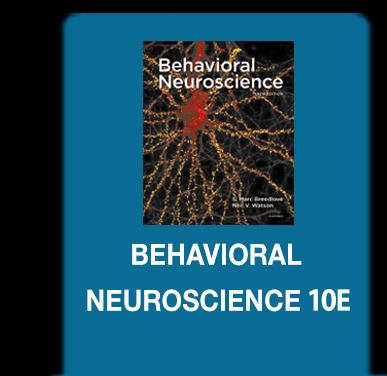Links for Keyword: Neuroimmunology
Follow us on Facebook or subscribe to our mailing list, to receive news updates. Learn more.
MADISON - Staying healthy may involve more than washing hands or keeping a positive attitude. According to a new study from the University of Wisconsin-Madison, it also may involve a particular pattern of brain activity. By monitoring activity levels in the human brain's prefrontal cortex, the researchers demonstrate for the first time that people who have more activity in the left side of this area also have a stronger immune response against disease. The findings, soon to be published in the online edition of the journal Proceedings of the National Academy of Sciences, pinpoint one of the mechanisms underlying the link between mental and physical well-being. Numerous scientific studies show that keeping a positive attitude can keep a person healthy, says Richard Davidson, a UW-Madison neuroscientist and senior author of the paper. But he adds that the reasons why this connection exists are poorly understood.
Related chapters from BN: Chapter 15: Emotions, Aggression, and Stress
Related chapters from MM:Chapter 11: Emotions, Aggression, and Stress
Link ID: 4195 - Posted: 09.02.2003
People who are energetic, happy and relaxed are less likely to catch colds, while those who are depressed, nervous or angry are more likely to complain about cold symptoms, whether or not they get bitten by the cold bug, according to a recent study. Study participants who had a positive emotional style weren't infected as often and experienced fewer symptoms compared to people with a negative emotional style, say Sheldon Cohen, Ph.D., of Carnegie Mellon University and colleagues, writing in the July issue of Psychosomatic Medicine. Cohen's team interviewed 334 healthy volunteers three evenings a week for two weeks to assess their emotional states. The volunteers described how they felt that day in three positive-emotion areas: vigor, well-being and calm. They were also questioned about three categories of negative feelings: depression, anxiety and hostility.
Related chapters from BN: Chapter 15: Emotions, Aggression, and Stress
Related chapters from MM:Chapter 11: Emotions, Aggression, and Stress
Link ID: 4068 - Posted: 07.22.2003
BLOOMINGTON, Ind. -- A liposuction-like procedure called lipectomy results in a loss of humoral immune protection in two commonly studied rodent models, the prairie vole and the Siberian hamster, scientists have found. The report by a team of researchers at Indiana University, Ohio State University and Johns Hopkins University was made available online this week by The Royal Society. Their study is the first to show that even a moderate loss of fat leads to decreased amounts of infection-fighting IgG antibodies. "We were able to show that even a subtle decrease in fat can decrease humoral immunity, which has the potential to increase disease susceptibility," said Indiana University biologist Gregory Demas, who led the study. "We knew that immune function is energetically costly, but it is now clear that animals use energy stored as fat to bolster immunity and likely to combat infection." Copyright 2002, the Trustees of Indiana University
Related chapters from BN: Chapter 15: Emotions, Aggression, and Stress; Chapter 13: Homeostasis: Active Regulation of the Internal Environment
Related chapters from MM:Chapter 11: Emotions, Aggression, and Stress; Chapter 9: Homeostasis: Active Regulation of the Internal Environment
Link ID: 3626 - Posted: 03.29.2003
COLUMBUS, Ohio -- A new study found that Siberian hamsters boost their immune function during the winter in order to help them cope with the seasonal stresses of cold weather and limited food. Researchers at Ohio State University and their colleagues found that the hamsters had higher levels of certain immune cells in their bloodstream during the short days of winter. In addition, during acute stress, hamsters kept in winter-like conditions launched a more vigorous immune response in preparation for potential injury or infection. Hamsters take a cue from the decreasing length of days as winter approaches as a signal to boost their immune function, according to the study, which will be published in the March 19 edition of the Proceedings of the National Academy of Sciences.
Related chapters from BN: Chapter 15: Emotions, Aggression, and Stress; Chapter 14: Biological Rhythms, Sleep, and Dreaming
Related chapters from MM:Chapter 11: Emotions, Aggression, and Stress; Chapter 10: Biological Rhythms and Sleep
Link ID: 1717 - Posted: 03.19.2002
In a discovery that demonstrates a clear link between the mind and body at a molecular level, scientists have shown that a chemical signal which normally allows nerve cells to communicate with each other - to alter sleep cycles, for example -- can also re-direct actions of the immune system. The research in mice confirms mounting evidence from studies of cultured cells that the nervous system directly influences the immune system. It has prompted new experiments to determine if the nerve-generated signal or its receptors in the immune system might make good drug targets to control asthma or allergies. "This is the first clue of a practical pharmacological approach to using the nervous system for both improving immune defenses and damping harmful immune responses at their roots in diseases as diverse as arthritis and asthma," said Edward Goetzl, MD. Copyright 2001 Regents of the University of California. All Rights Reserved.
Related chapters from BN: Chapter 15: Emotions, Aggression, and Stress
Related chapters from MM:Chapter 11: Emotions, Aggression, and Stress
Link ID: 1003 - Posted: 11.16.2001


.gif)

